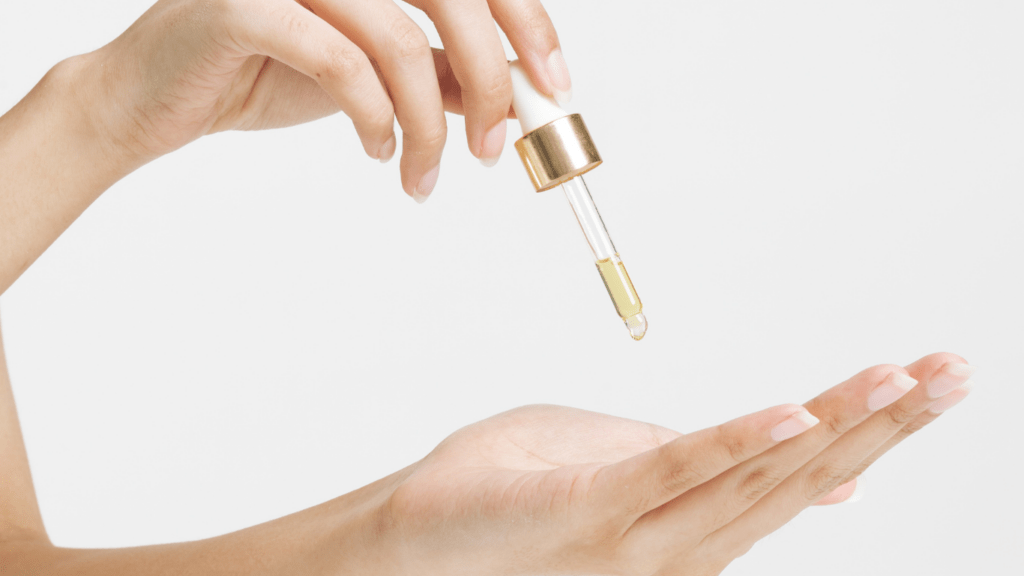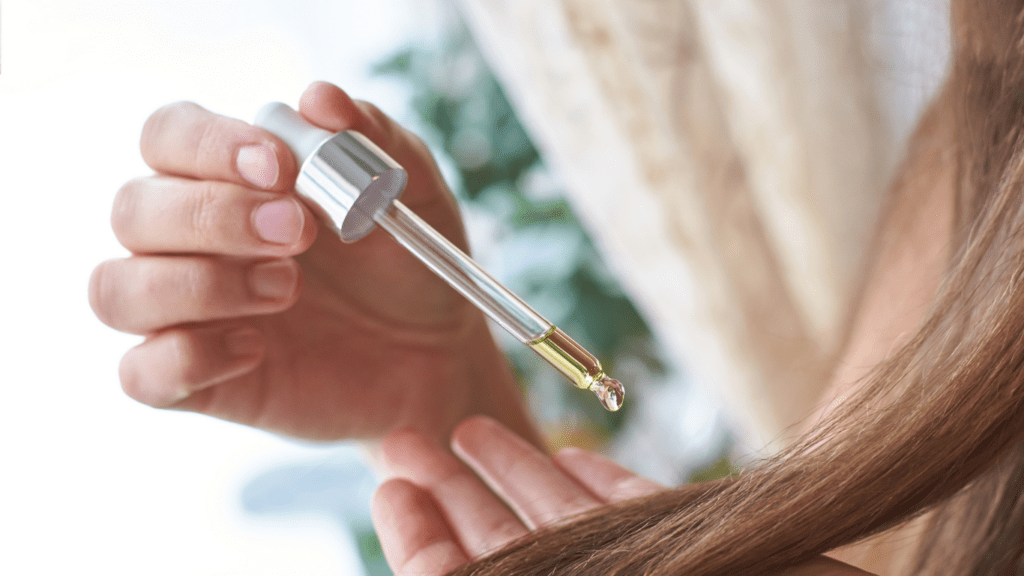Understanding Essential Oils
Essential oils come from plants through distillation or cold pressing. These concentrated extracts capture the plant’s essence, often used in cosmetics and wellness routines.
Their chemical composition varies by plant type, affecting their benefits. For example, lavender oil contains linalool and linalyl acetate, known for their calming properties. Understanding these compounds helps in selecting the right oil for specific needs.
Not all essential oils suit every skin type. Patch testing is crucial, as some oils can cause irritation. Dilution in carrier oils like jojoba or almond oil increases safety.
Essential oils are potent, so use them wisely. They can transform beauty and wellness routines when you understand their properties and applications.
Benefits Of Essential Oils For Skin
Essential oils offer various skin benefits, from reducing acne to hydrating dry skin. Their natural properties make them a valuable addition to any skincare routine.
Best Oils For Acne-Prone Skin
Tea tree oil, known for its antimicrobial properties, helps combat acne-causing bacteria. According to research, tea tree oil can reduce the number of inflamed and non-inflamed lesions. Additionally, lavender oil, with its anti-inflammatory and antiseptic qualities, helps to heal acne and prevent future outbreaks. To use these oils, mix a few drops into a carrier oil like jojoba oil and apply it to affected areas.
Best Oils For Dry Skin
Rosehip oil, a rich source of essential fatty acids, is excellent for moisturizing and repairing dry skin. Studies indicate that it helps improve skin hydration and elasticity. Similarly, argan oil, laden with vitamin E, provides deep nourishment and prevents moisture loss. For dry skin, blend these oils with a compatible carrier oil and massage into the skin twice daily.
Best Oils For Anti-Aging
Frankincense oil, known for its skin-tightening properties, reduces the appearance of wrinkles. Research shows it stimulates collagen production, improving skin firmness. Additionally, rose oil contains high levels of antioxidants, which help combat free radicals and slow down aging. For anti-aging benefits, mix these essential oils with carrier oils such as almond oil and apply to the face and neck areas.
Benefits Of Essential Oils For Hair

Essential oils offer numerous benefits for hair, from promoting growth to strengthening strands. Each oil carries unique properties that cater to specific hair needs.
Best Oils For Hair Growth
Several essential oils are known for their ability to stimulate hair growth. Rosemary oil, for instance, has been shown to improve circulation in the scalp, which can lead to faster hair growth (PubMed). Peppermint oil is another option, offering menthol that increases blood flow to the scalp, encouraging hair growth. Lastly, lavender oil promotes hair growth due to its ability to reduce stress and its antimicrobial properties that maintain scalp health.
Best Oils For Dry Scalp
Dealing with a dry scalp often involves using essential oils that provide deep hydration. Tea tree oil is effective for soothing dry, itchy scalps due to its antifungal and antibacterial properties. Cedarwood oil helps balance the oil glands in the scalp, leading to improved hydration. Finally, chamomile oil offers anti-inflammatory benefits, calming irritation and providing moisture to the scalp.
Best Oils For Hair Strengthening
- Strengthening hair requires using essential oils that fortify hair strands.
- Argan oil, rich in vitamin E and fatty acids, is excellent for improving hair elasticity and preventing breakage (NCBI).
- Jojoba oil, with its similarity to natural scalp oils, deeply penetrates hair shafts, providing vital nutrients and strengthening hair from the inside out.
- Lastly, clary sage oil, containing phytoestrogens, helps regulate oil production and improves hair texture, making hair stronger and less prone to damage.
Essential Oils For Wellbeing
Essential oils can significantly improve overall wellbeing. They provide natural solutions for:
- stress relief
- better sleep
- mood enhancement
Best Oils For Stress Relief
Lavender oil, with its high linalool content, is known for its calming effects. I find it reduces stress when diffused in the evening. Bergamot oil, extracted from citrus fruits, has mood-lifting properties. When I’m feeling overwhelmed, I add a few drops to my bath. Chamomile oil, especially Roman chamomile, soothes the nervous system. It helps me unwind after a hectic day.
Best Oils For Better Sleep
Lavender oil stands out for promoting good sleep. I apply it to my pillow for restful nights. Cedarwood oil, with its sedative qualities, aids sleep by activating the brain’s pineal gland, which releases melatonin. Vetiver oil, known for its grounding properties, combats insomnia. I mix it with a carrier oil and massage it onto my feet before bed.
Best Oils For Boosting Mood
Citrus oils like orange and lemon are powerful mood enhancers. I diffuse them in my workspace for an energy boost. Frankincense oil elevates mood and decreases tension when inhaled directly or used in a diffuser. Ylang ylang oil has uplifting properties and eases anxiety. When I need a positivity boost, I blend it into my favorite lotion and apply it to my skin.
Essential oils offer natural, effective remedies for enhancing mental and emotional wellbeing.
How To Use Essential Oils Safely
Using essential oils safely is key to gaining their benefits without unwanted side effects. Follow these guidelines for effective and safe application.
Dilution Is Essential
Always dilute essential oils in a carrier oil, such as coconut or jojoba oil, before applying them to the skin. A general guideline is to use one or two drops of essential oil per teaspoon of carrier oil for adults. This reduces the risk of skin irritation or sensitization.
Perform a Patch Test
Conduct a patch test before fully integrating a new essential oil into your routine. Apply a small amount of diluted oil to a discreet area of skin, like the inside of your elbow. Wait 24 hours to see if any irritation occurs. If there’s no reaction, it’s likely safe to use.
Avoid Sensitive Areas
Keep essential oils away from sensitive areas like the eyes, ears, and mucous membranes. If accidental contact occurs, flush the area with water or a carrier oil (not water alone) to mitigate irritation.
Be Cautious With Sun Exposure
Some essential oils, particularly citrus oils like lemon and bergamot, can increase skin’s sensitivity to sunlight, causing burns or dark spots. Avoid sun exposure for at least 12 hours after applying photosensitive oils.
Store Properly
Store essential oils in dark glass bottles away from heat and light to maintain their potency and shelf life. Proper storage prevents degradation and ensures the oils retain their therapeutic properties.
Consult a Professional
Consult a healthcare provider or a certified aromatherapist if you’re pregnant, breastfeeding, or have underlying health conditions before using essential oils. Interactions with medications or health conditions can pose risks that expert advice helps mitigate.
Use Appropriate Dosages
Less is often more when it comes to essential oils. Use the smallest effective amount and increase only if necessary. Overuse can lead to adverse reactions and diminish benefits.
Adhering to these safety guidelines ensures a beneficial and risk-free experience with essential oils, enhancing your beauty and wellness endeavors.



